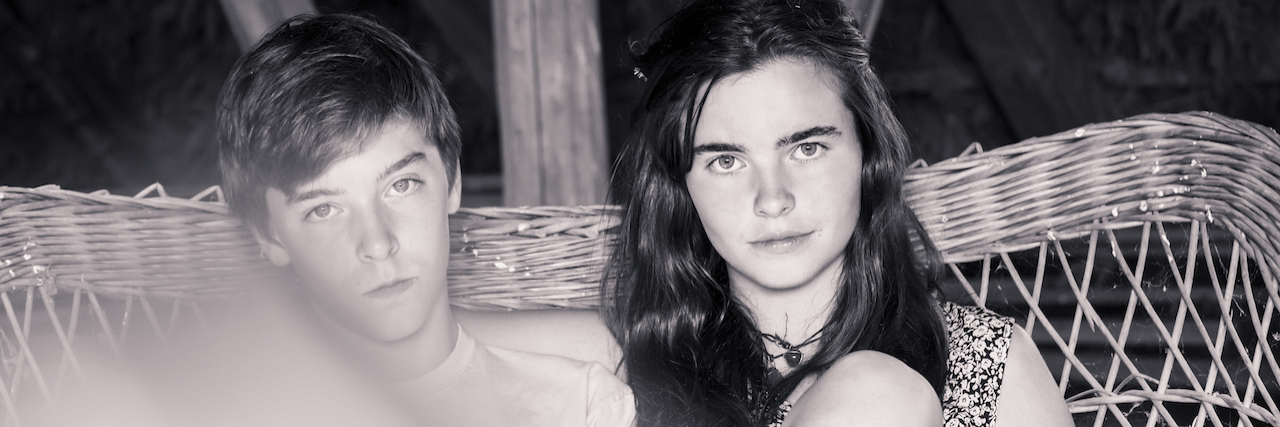Today is World Suicide Prevention Day, and I see a lot of people and pages sharing comments, videos and pictures.
But I believe it is important to question what sharing these comments, videos and pictures achieves.
The aim is the prevention of suicide. The action, across social media, seems to be raising awareness of suicide. Breaking the stigma, meaning being able to talk about it openly, understanding it better and understanding that there are so many different circumstances which lead to suicide is key, and I see the value of social media for this.
However, in terms of actually preventing suicide, a lot of the things I see online just give suicide more and more of a stage. There is already awareness. People know what suicide is and they know that it happens. Suicide prevention does not necessarily come from awareness, and awareness does not necessarily come from constant sharing and hashtagging on the internet.
I believe that around the time of my brother’s death exactly four months ago today, he was surrounded by references to suicide. He was constantly being exposed to it. For people who are susceptible to suicidal thoughts, this can serve as a trigger. There are many examples I can think of of this, not least the recent TV series “13 Reasons Why.” Or Chester Bennington’s death closely following that of his friend Chris Cornell. Preventing suicide does not start through surrounding us all with the word “suicide.” The Alliance of Hope, a website for those bereaved by suicide, recognizes that we must force ourselves to actually look at those who are at risk of suicide and actively try to support them: suicide postvention is prevention.
If people do actually want to try to prevent suicide, we need to try harder than just sharing photos and comments about how many people die a day from suicide and such. Do people know how to recognize the warning signs of someone who is suicidal? Or how to recognize when someone is having an episode of psychosis and what to do?
If we are to make World Suicide Prevention Day a day which actually has a real purpose, and a real effect, then we need to work hard on what is actually useful. I believe focusing on the symptoms and all the issues that may lead to suicide is beneficial. I also believe a lot of this fight needs to be done person-to-person, face-to-face. In my opinion, preventing suicide through social media is a losing battle.
I also have an issue with people throwing around the phrase, “Suicide is preventable.” Because at the moment, I believe it is not always preventable. The seemingly automatic response of “suicide is preventable” with relation to every single suicide is something I find extremely difficult to deal with and I know I am not alone in feeling this.
When I hear this, it makes me feel like I’m being told there was something more I could have done. I feel blamed as the person who should have seen it coming, or should have been able to stop him. My constant doubts about whether one different decision could have saved my brother’s life plague me as it is, without hearing this phrase. All I ever wanted was to help. Hearing “suicide is preventable” feels like being told I failed.
It also gives the suggestion that there was some obvious way of helping. But the fact is, however many eery signs there are now that this was in his future, he never let me or any of us ever know he feared this would happen, and I had no idea.
Or it confirms my worst fears, the fear that keeps me awake, that I lost my brother to “a moment,” a second’s twisted thought that a second later would have disappeared had he not acted on it and he still would be here.
My brother was lively, bright, sociable. He also had schizophrenia. This was what he succumbed to.
Suicide, right now, is not always preventable. Suicide is not one cause of death. Some suicides are entirely preventable. But for others, the focus needs to be on awareness of the illnesses that caused it, rather than the suicide itself. By the same logic, many deaths from many physical illnesses that people die from, are also preventable, if the illness had a cure. Thus suicide should always be preventable, but it is not, because we don’t yet have good enough ways to deal with the various illnesses which can cause it.
Think about the way you choose your words. My brother died from an illness, he did not “commit” suicide, suicide killed him. On World Suicide Prevention Day today it feels so important to me to say that suicide is not always a choice. Suicide is not always preventable. But it will be when we find cures for the mental illnesses which can cause it.
Word Suicide Prevention Day has existed since 2003, but the figures are only going up. Please, today, rethink how suicide can be prevented. Read about different mental illnesses, learn to recognize the signs, avoid being judgmental, learn to listen, empathize and support. But as well as this, know the limits of what you do, too. Instead, on Suicide Prevention Day, work towards something achievable: suicide should always be preventable. Let us focus on research and attitudes, and one day soon, cures for mental illnesses.
If you or someone you know needs help, visit our suicide prevention resources page.
If you need support right now, call the National Suicide Prevention Lifeline at 1-800-273-8255, the Trevor Project at 1-866-488-7386 or text “HOME” to 741-741. Head here for a list of crisis centers around the world.
We want to hear your story. Become a Mighty contributor here.
Thinkstock photo via ArminStautBerlin

